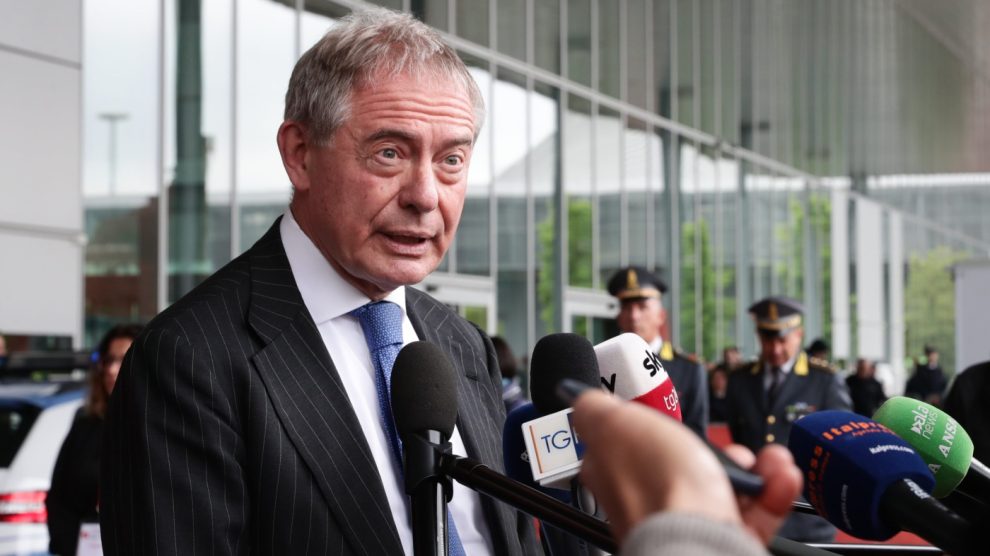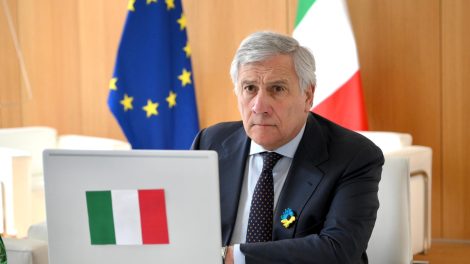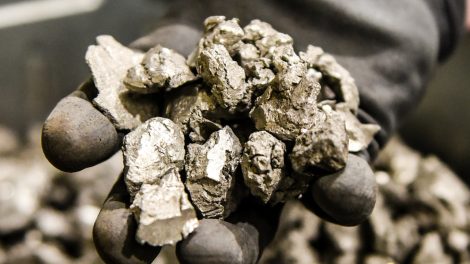Ukraine Reconstruction Conference coming up. Representatives of the Italian business world, leading international financial institutions and trade associations – representing over one thousand Italian companies – are set to take part in the bilateral Reconstruction Conference, which will take place on Wednesday, April 26 at Palazzo dei Congressi in Rome.
- The event is an opportunity to gather directly from the Ukrainian authorities a sense of what is needed to rebuild the country…
- … and to enable the Italian government, institutions and businesses to formulate concrete proposals for meeting Kyiv’s needs, both in terms of urgent, fast recovery and in the medium to long-term reconstruction of the entire country.
In Minister Urso’s words. “We were already Ukraine’s third-largest global trading partner, a leader in significant sectors, so a meeting on reconstruction is a duty to that people, to whom we must give the hope of peace”. Thus spoke Business Minister Adolfo Urso in an interview with Corriere della Sera, stressing that Italy “will always be on Ukraine’s side, even in the reconstruction of the country to favour its European Union accession path.”
- He assured that over a thousand associations and companies will be present, comprising “all the largest private and public Italian companies in strategic development sectors.”
- “In some cases we need to work immediately, such as the restoration of power plants and irrigation and the sowing of crops.”
- As the MFA had previously highlighted, the Italian private sector has shown great interest in participating in reconstruction efforts.
How it will play out. Minister Urso explained that the conference will be divided into thematic tables “in which Ukrainian companies, institutions, and entities will participate and compare themselves with [Italy’s]. After official salutations and an initial outline of the reconstruction programme, the conference will feature an institutional session, another part devoted to participating international financial institutions, and then sectoral discussions and in-depth analyses panels (here’s a tentative schedule).
In actual terms: a table on infrastructure, logistics, and transport will be the framework where to launch the Horonda dry port project, explained the minister. Another cooperation features “a rail marshalling yard on the border with Hungary, participated by a public-private consortium with Italian companies that will take care of its construction,” to ensure the arrival of Ukrainian goods into the European market.
- “It is very important for exporting Ukrainian goods that will be able to arrive at the Quadrante Europa inter-port in Verona and the port of Trieste, which is a candidate to become one of the major ports of call for Kyiv. Then we will have tables dedicated to energy; agro-industry; health; metallurgy, aerospace and digital services. In the latter cases we are already at work.”
Ongoing engagement… In a recent phone call with Italian Prime Minister Giorgia Meloni, Ukrainian President Volodymyr Zelensky called the Conference an “important opportunity to strengthen relations between Italian businesses and Ukraine.” The event builds on top of the political, military, financial and humanitarian support – including refugee reception and equipment to restore the energy infrastructure – that Italy has been providing to Ukraine since the beginning of the invasion.
- Minister Urso had laid the groundwork for this reconstruction drive when he travelled to Kyiv in January along with industrial leaders, most notably Confindustria’s Carlo Bonomi and Francesco Talò, diplomatic advisor to PM Meloni Meloni (who visited the Ukrainian capital shortly after).
- Confindustria, which acts as Italy’s Chamber of Commerce, set up a new office that will coordinate industrial and technological cooperation between Rome and Kyiv.
… within an international effort. The Conference in Rome adds to the wider aid endeavour of Ukraine’s allied nations. Both Germany and France, the other two major EU powers, held their bilateral conferences in October and December, respectively, and together G-7 countries launched a Donor Coordination Platform in February.
- Allies envisage a multi-layered process of reconstruction comprising two main phases:
- Fast recovery in the areas liberated by Russian occupation and restoring the critical civil and energy infrastructures destroyed by the offensive (the World Bank estimates a bill of 14 billion dollars).
- A more long-term and multi-year phase concerning the modernisation of large infrastructures, as well as the economy’s regulatory and market system, to make Ukraine fit to integrate within the EU’s single market.





